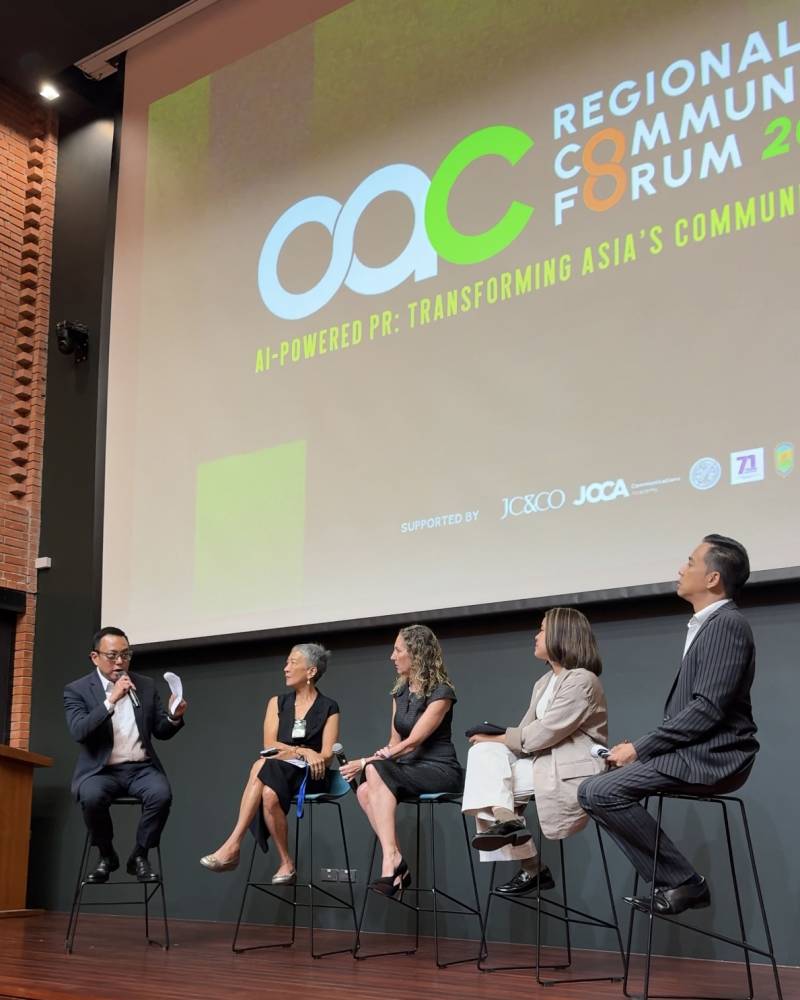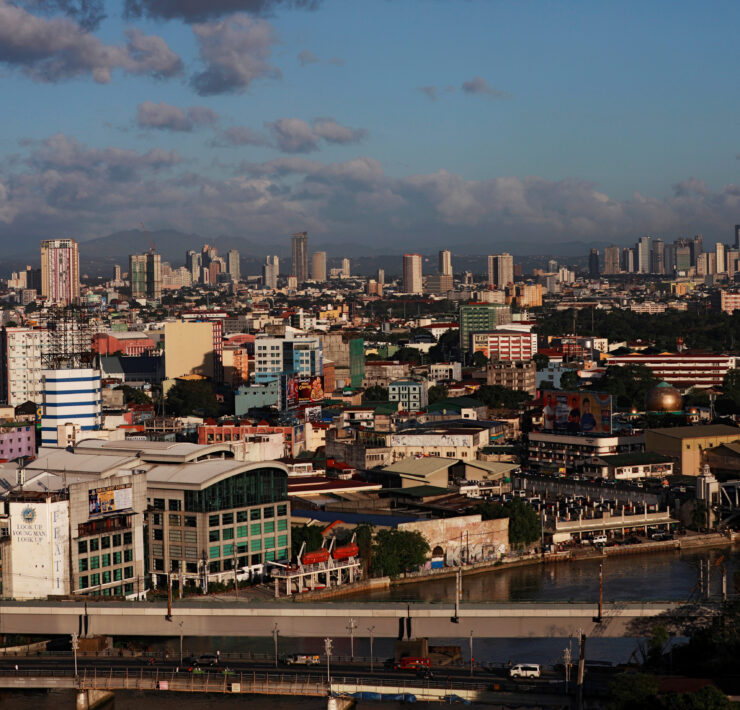Asian communicators step into the AI era with optimism, accountability

Communications professionals across Asia are entering a defining new era, one where artificial intelligence (AI) is rapidly evolving into a more accessible toolkit, bringing challenges and opportunities.
According to AI Adoption Among PR Professionals in Asia 2025—a landmark white paper by One Asia Communications (OAC), a leading network of independent agencies across the Asia-Pacific region—communicators are embracing AI with growing strategic intent, optimism and responsibility.
Unveiled at the annual One Asia Communications Forum in Bangkok, the study marks the first independent, agency network-led report that offers a regionally grounded perspective on how AI is reshaping communications in Asia.
The study highlights that AI is a crucial tool for enhancing efficiencies, generating insights and supporting the implementation of human-led communications strategies for brands.
Conducted in partnership with RB Consulting, the research surveyed nearly 300 in-house communications professionals across 12 Asian markets: Cambodia, China/Hong Kong, India, Indonesia, Japan, Malaysia, the Philippines, Singapore, South Korea, Taiwan, Thailand and Vietnam.
Execution to strategy
The findings reveal how PR professionals can elevate their roles to become more sophisticated strategic counsellors while using AI tools for the more tactical tasks. As AI automates monitoring, drafting and data analysis, communicators are redirecting their focus toward higher-order skills, such as judgment, insight, ethics and strategic foresight.
“AI is transforming communicators into better insight generators and trust builders,” says Siwon Hahm, OAC chair and CEO of Hahm Partners. “We are moving from doing the work to directing how technology supports human understanding and truth.”
Across Asia, this shift is already visible. Marketing teams are using AI for audience insights and creative optimization. Corporate communications teams are integrating AI into stakeholder mapping, reputation tracking and predictive issues management. PR leaders are guiding organizations on the ethical, reputational and societal implications of AI use.
The paper identifies generative engine optimization (GEO) as the next frontier of communications—a discipline where AI, data and storytelling converge to deliver adaptive, personalized audience experiences.
The rise of GEO
In a world indexed by AI systems, brand visibility is no longer about coverage or impressions, but about how organizations are interpreted and trusted by intelligent engines.
To thrive, communicators are urged to explore:
- Developing trustworthy, transparent content that algorithms can understand and amplify;
- Designing dynamic audience experiences that evolve based on engagement and relevance; and
- Building emotional intelligence into digital storytelling to maintain authenticity amid automation.
Beyond technology, the study underscores a second and equally vital definition of GEO—governance, ethics and oversight—forming the foundation for responsible AI integration in communications.
Across all 12 markets, communicators agree that maintaining GEO principles is essential for building and protecting trust:
- Governance: Clear internal policies and accountability frameworks for AI use;
- Ethics: Fairness, transparency and respect for truth embedded in every output;
- Oversight: Human supervision ensuring that technology enhances, not replaces, judgment.
Moving forward
The report predicts that over the next five years, AI will become a strategic copilot for communicators, driving new levels of engagement, creativity and accountability.
Emerging trends include:
- Hyper-personalized storytelling powered by predictive analytics and generative tools;
- Experience-based measurement, focused on trust and relevance, not just exposure; and
- Ethical leadership where communicators guide organizations through the reputational risks of an AI-first ecosystem.
“The future of AI in communications isn’t about faster outputs, it’s about deeper outcomes,” says Hahm. “Asia’s communicators are ready to lead this evolution.”
Across the region, sentiment toward AI adoption remains largely positive. Indonesia and Vietnam report strong optimism, viewing AI as a driver of creativity and innovation.
Thailand, Malaysia and the Philippines are integrating AI into analytics and engagement, with a growing emphasis on measurement and ethics.
Singapore, Japan and South Korea are taking a balanced, governance-led approach to adoption, while India and Taiwan are using AI for advanced analytics and stakeholder mapping.
Chinese mainland, Hong Kong and Cambodia show pragmatic and early-stage adoption shaped by compliance and foundational literacy.
Regional insights
Overall, 58 percent of respondents view AI as a positive force in communications, while 80 percent express a need for formal AI training.
Top applications include content development, trend analysis and performance measurement, with a rising focus on ethics, transparency and data protection.
Noel Rene Nieva, president and CEO of Perceptions Inc., the Philippines representative in the One Asia Communications network, says the findings reaffirm what many are experiencing on the ground.
“AI is becoming an indispensable partner in our work as communicators, but its true value comes when it enhances, not replaces, human judgment and creativity,” he says. “Our role now is to ensure AI is used responsibly to drive clearer insights, greater efficiency, and communications that remain deeply human at their core.”





















